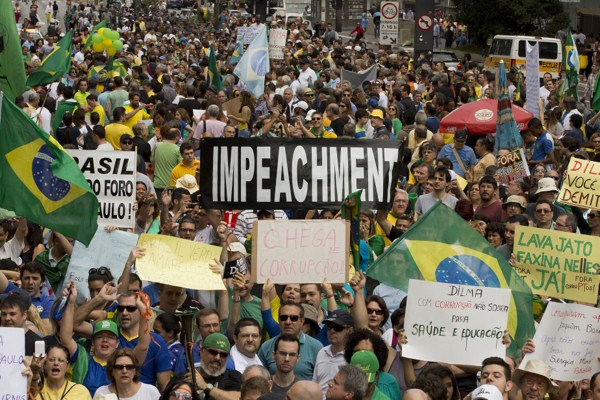Earlier this month, while Brazilian President Dilma Rousseff rubbed shoulders with other global leaders at the G-20 summit in Australia, her justice minister, Jose Eduardo Cardozo, announced the arrest back in Brazil of 15 people for arranging kickbacks on contracts from state-owned oil company Petrobras. Shortly after hearing the news, two more executives from a major Sao Paulo construction company turned themselves in to police. The second round of the corruption investigation known as Operation Carwash was underway, and by Nov. 16, 23 people would be arrested, including Renato Duque, former head of services at Petrobras.
As word of the arrests spread, 10,000 people took to the streets of Sao Paulo, many of them hoisting banners that called for Rousseff’s impeachment. Instead of reflecting on global affairs, Rousseff’s parting remarks at the G-20 meeting addressed her home audience: The Petrobras corruption scandal “would change the country forever,” she said. “How? By ending impunity.”
Although corruption charges have swirled around Petrobras for years, the first sign that something was seriously awry at the company came after Paulo Costa was arrested during the launch of Operation Carwash eight months ago. In exchange for leniency, he told prosecutors that as Petrobras refinery chief he managed a fund that diverted $400 million from company coffers to political campaigns. He also provided the information that helped police begin building cases on some of the men who were arrested last week.

